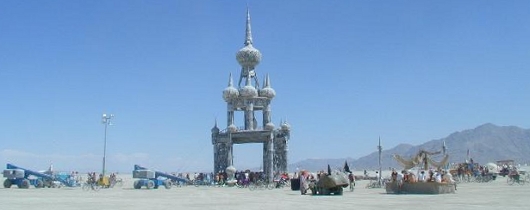Understanding Ukraine - The Third Rome by Mark Stone
March 2022. Russians have long had a saying: "Moscow is the third Rome; a fourth there shall never be." The two sides of this coin offer a bright side, and a very dark side. And to those of us who received a typical western-oriented education, drawing a line from Rome to Moscow will seem surprising at best.
The western fable we are taught goes something like this: the ancient Greek city states, Athens in particular, were the crucible of democracy, and that tradition of democracy was passed on to the Roman Republic. When the Romans sinned, and abandoned republic for empire, they inevitably fell and Europe descended into a Dark Age. Only the growing spread of Catholicism, first in Charlemagne's Frankish kingdom and ultimately in Norman England, brought us back from that dark time. A re-commitment to the Rule of Law in the form of the Magna Carta opened the doors to a renaissance that led to the Enlightenment in which democratic principles inexorably returned to the nations of Europe, and of course America. In this telling the "Pax Britannica", from 1815 to 1914, was the purest expression of what the Greeks hoped for and the British fulfilled.
We've heard this fable in the narratives we've read ranging from Shakespeare's tragedies and histories to Edward Gibbon's "Decline and Fall of the Roman Empire". Except that this fable is fake.
The period we call the Dark Age, dating roughly from the fall of Rome in the 5th century until the Norman conquest of England in the 11th century, corresponds with the rise and flourishing of the Byzantine Empire, the eastern half of what had once been the Roman Empire. During this time the greatest city in Europe in terms of culture, commerce, influence, and population was Constantinople. This was the "second Rome" implied by the Russian saying.
At its height the Byzantine Empire covered perhaps two thirds the land mass of the Roman Empire at its height, including all of the Balkans, Turkey, much of the Middle East, as well as parts of Italy and North Africa. So Europe did not really descend into a dark age; the light had simply shifted from west to east. The Byzantine ascension in Europe was more commercial than military. As technology slowly advanced, Northern European raw materials like lumber, oil, and iron became ever more important. The key trade routes for these goods became the great rivers west of the Ural Mountains that flow into the Black Sea. Constantinople became the gateway through which these goods departed to the rest of the western world.
The Byzantine Empire's most important trading partner during this time was the Kievan Rus. That’s right: Kiev’s identity as a political power in Europe predates Moscow’s identity as a political power. How important were the Kievan Rus to the Byzantines? So important that the Byzantine Emperor’s personal bodyguard was composed of elite Rus soldiers known as the Varangian Guard.
So why don't we hear about any of this in our typical western education? Because this early rise in Eastern European power was quashed by two concurrent events:
- The rise of Turkish military power in Central Asia, first in the form of the Seljuq Turks, and then in the form of the Ottoman Turks. This led to the ultimate demise of the Byzantine Empire.
- The rise in Far Asia of the Mongols, who swept away the Kievan Rus and all other Eastern European powers in the 13th Century.
The Byzantines never recovered, and the Ottoman Empire would not fall until the 20th Century. Slavic peoples threw off the Mongol shackles more quickly, but it was Moscow, not Kiev, that rose to power in the wake of Mongol decline.
Moscow. The third Rome.
So it turns out that the through line connecting Rome to Moscow is neither military nor commercial, but in fact religious. As the West aligned on Catholicism, the East aligned on the Eastern Orthodox Church. In the face of joint incursion by the Turks and the Mongols, the stewards of culture and civilization were the Eastern Orthodox priesthood. When the Grand Duchy of Moscow emerged as the power that would ultimately become Tsarist Russia, it was the Russian Orthodox Church that brought forth a cultural heritage that dated back to at least the birth of Christianity in the Eastern Roman Empire.
Rome. Constantinople. Moscow. There you have it. Now, in the 21st Century, there are two sides to this coin.
On the one hand, there is an eastern version of manifest destiny, in which the Russians are carrying forward a rightful claim to empire that Rome once had, that Constantinople later inherited, and that Moscow now holds. Putin’s recent speeches certainly invoke this sense of manifest destiny.
Yet this version of destiny rings hollow. There was never an enduring military or political entity connecting Rome to Moscow. The real connection is in the knowledge and culture carried by the church.
So on the other hand, we have the great cultural heritage that Russia has contributed to Europe and the world. Art; classical music; ballet; drama; literature. So much incredible literature. Yet culture is inherently collaborative, not conflicting. Russian culture cannot be in conflict with Ukrainian culture, or Western culture. When you inject conflict into culture what you are left with is politics, not culture.
We in the West should respect, and be humbled by, the incredible cultural contributions that Russia has made over the centuries. We should also acknowledge, without endorsing, Russia’s sense of manifest destiny. We cannot possibly find a fulcrum on which reason may gain leverage unless we acknowledge the perspective of the person on the other side of that fulcrum.


